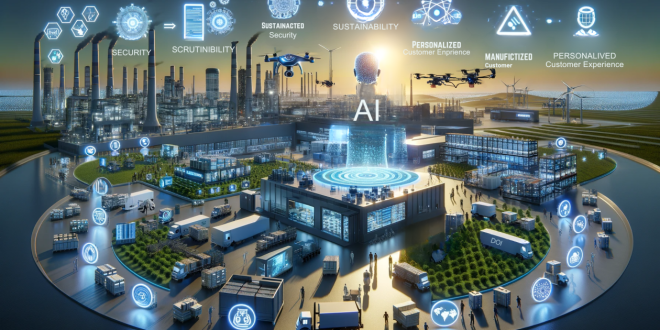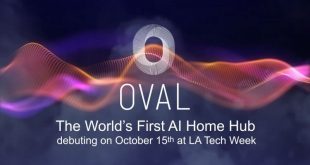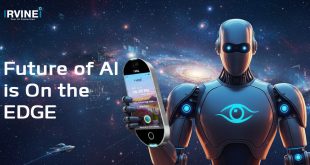AI: The Two Letters Redefining Our World
AI, two alphabets poised to revolutionize our world, is changing how we think and act, much like how computers and the internet transformed our lives. Significant advancements have been made in AI industry, particularly in banking, fraud detection, fintech, enterprise applications, advertising, defense, cybersecurity, DevOps, and more. The rise of Artificial General Intelligence (AGI) has predominantly impacted enterprises and content creators.
Billions Flow Into AI, But Consumers See Little of It
The most consumer-facing AI product to date is OpenAI’s ChatGPT. However, over 95% of AI applications are tailored for small and large businesses. In 2023, 2,500 AI startups in the USA raised $42.1 billion, with Mistral AI leading the pack at $415 million. Most of these investments focus on developing Large Language Models (LLMs), Large Video Models (LVMs), and other AI infrastructure technologies essential for advancing AI. These fields are widely regarded as the next frontier of artificial intelligence.
Most AI innovations at the application level focus on sectors such as banking, technology, medicine, defense, cybersecurity, entertainment, and aerospace. This B2B focus has left a void in consumer-oriented AI solutions. Although it is very feasible technologically to develop consumer-centric AI products and solutions, the consumer space remains largely untapped due to investors’ preference for the shorter sales cycles businesses associated with B2B startups.
Yes, robotic lawnmowers and vacuum cleaners have provided some assistance, but they fall very short of what AI and AGI can offer to the common man and woman. AI targets us daily with personalized advertisements and behavioral analysis but fails to enhance our daily lives significantly.
What AI Could Do for Everyday Life
Imagine an AI system that manages your daily schedule, prioritizes your to-do list based on real-time factors like traffic, weather, etc., controls your home security, alerts you if your child runs out of the house, monitors elderly family members, and even warns you of potential dangers in your vicinity and much more. This vision is similar to Jarvis from Iron Man or the advanced technology in Back to the Future, but it is achievable today.
Retail outlets, warehouses, factories, and small businesses also lack the necessary AI tools, such as shoplifting detection, factory floor safety, and real-time predictive analytics to prevent injuries, damages, or thefts. The possibilities for improving consumer and business lifestyles through AI are endless, representing a tremendous opportunity on par with the advent of smartphones.
The Overlooked Goldmine: AI Consumer Tech
The consumer market for AI now coined as “AI Consumer Tech,” is the next big avenue in the AI industry. Investors have ignored it—not like a middle child, but like a stepchild. Although the total addressable market (TAM) for consumer AI is much larger than that of banking, fintech, and other enterprise solutions, investors find the sales cycles in those B2B industries simpler and more appealing.
Most AI startups receive funding from firms with extensive portfolios, leading to a cycle where these companies buy and sell from each other, fostering B2B growth. This cycle, characterized by stronger connections, fewer complications, and steady revenues, appeals to investors who favor Software as a Service (SaaS) over hardware due to perceived risks.
However, the world’s two biggest companies are Apple and Nvidia and readers exactly know their claim to fame. Demonstrating the potential for success in this space. The consumer tech market, ranging from iPhones to Facebook, involves different business cycles that can be daunting for average angel or VC investors, particularly due to high customer acquisition costs (CAC) in an attention-scarce world.
IRVINEi’s Bold Vision: Bringing AI Home
One company taking the risk is IRVINEi, which is developing OVAL device to enhance the daily lives of the common man, offering a personal assistant and bodyguard-like AI system similar to Jarvis. Additionally, IRVINEi is creating an AI marketplace for developers to build and share AI computer vision models, solving various life problems using AI Computer Vision Models (CVMs) and sharing or selling them to others who need them, similar to app stores for iOS and Android. This approach offers virtually limitless solutions and customization to improve the lives of people to save them from different solutions from baby monitors to dog monitors to theft and burglary protection, senior adult care, and much more.
A Call to Shift Focus Toward the Consumer
In short, the AI industry is missing out on a vast market by not fully embracing consumer needs. The potential for AI to revolutionize the everyday life of the common household is immense, and it’s time for the industry to move towards serving the world’s largest and powerful market segment called Consumers.


